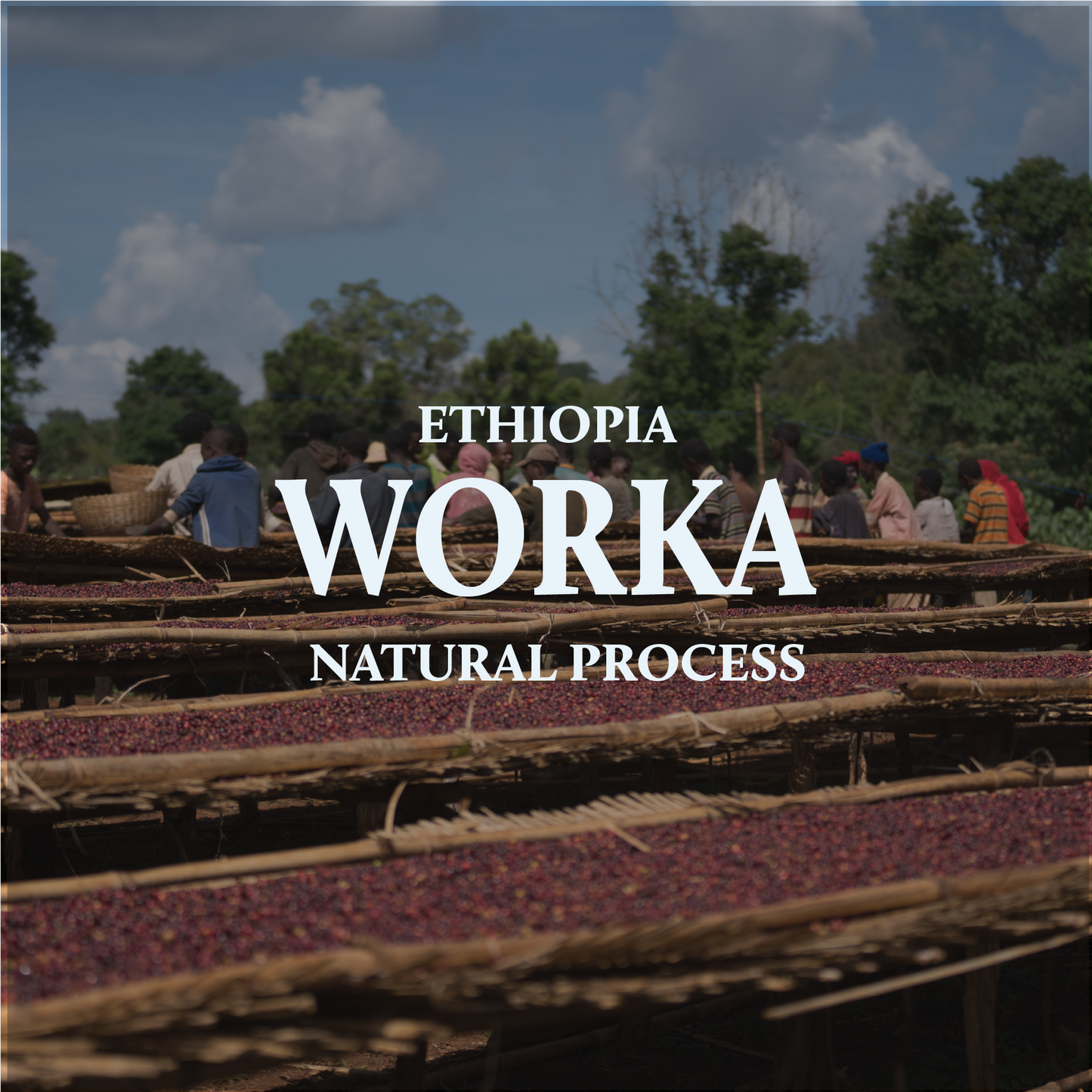Ethiopia Worka Natural
Ethiopia Worka Natural
Couldn't load pickup availability
The Cup: Perfumey jasmine, fresh apricot, and mellow cooked berry flavors with winey acidity and candy-like sweetness.
Washing Station | Worka
Process | Natural
Variety | Heirloom Ethiopian Varieties
Elevation | 2150 MASL
Region | West Arsi
Country | Ethiopia
Harvest | November - January
Importer | Cafe Imports
Worka
The Worka Cooperative in Worka operates the Halo Fafate Washing Station in Yirgacheffe, which serves around 900 smallholder farmers in the area. Coffee is typically grown on small garden-size plots and is used to supplement a family's income in addition to being grown for personal use. At this washing station, coffee is delivered in cherry form by producers, and it will be dried on raised beds. Coffees are then separated into "lots" of 150 bags of parchment coffee. Coffees in Ethiopia are typically traceable to the washing station level, where smallholder farmers—many of whom own less than 1/2 hectare of land, and as little as 1/8 hectare on average—deliver cherry by weight to receive payment at a market rate. The coffee is sorted and processed into lots without retaining information about whose coffee harvest is in which bag or which lot.
Coffees in Ethiopia are typically grown on very small plots of land by farmers who also grow other crops. The majority of smallholders will deliver their coffee in cherry to a nearby washing station or central processing unit, where their coffee will be sorted, weighed, and paid for or given a receipt. Coffee is then processed, usually washed or natural, by the washing station and dried on raised beds.
The washing stations serve as many as several hundred to sometimes a thousand or more producers, who deliver cherry throughout the harvest season: The blending of these cherries into day lots makes it virtually impossible under normal circumstances to know precisely whose coffee winds up in which bags on what day, making traceability to the producer difficult. We do, however, make every available effort to source coffee from the same washing stations every year, through our export partners and their connections with mills and washing stations.
Typically farmers in this region don't have access to and therefore do not utilize fertilizers or pesticides in the production of coffee.


